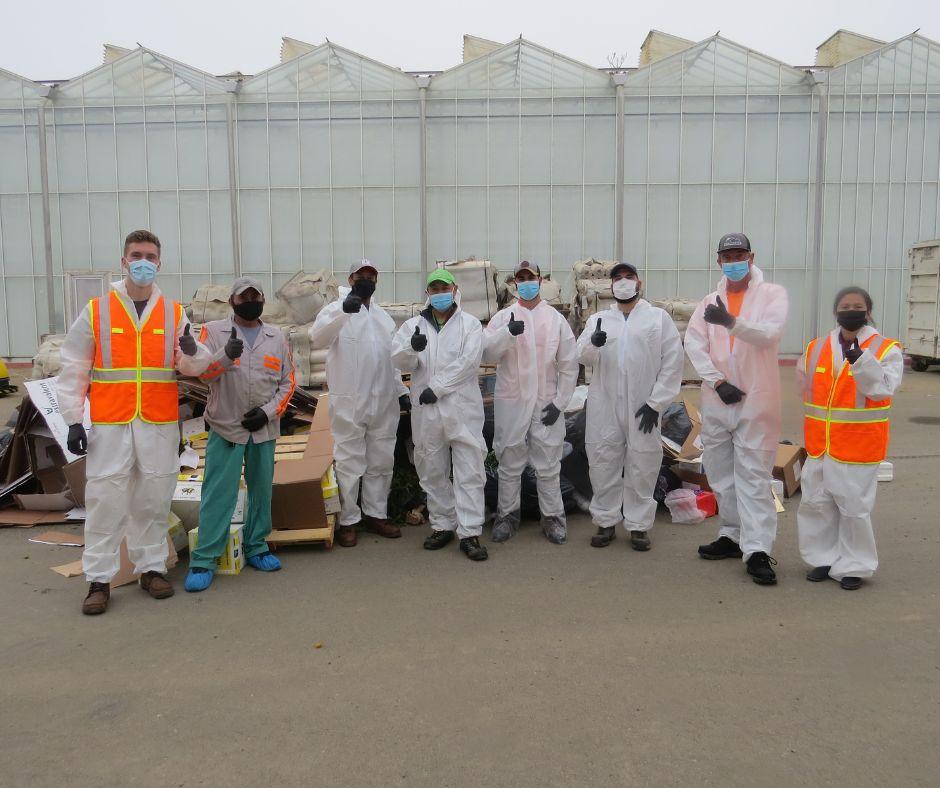Agriculture is responsible for significant Greenhouse Gas (GHG) emissions in California. Some new regulations, like SB1383, California’s Short-Lived Climate Pollutant Reduction Law, aim to reduce methane emissions and other climate pollutants by diverting green and food waste. These actions are essential to address the many effects of climate change and improve human health in California and beyond. As these regulations tighten, retailers and consumers also demand that companies do more to mitigate their environmental impact.
As detailed in the media release “Two-Year Produce & Reduce Pilot Program Concludes,” EFI received funding from the California Workforce Development Board (CWDB) to help build a high-road training partnership in the fresh produce industry that will both improve worker outcomes and reduce GHG and other gas emissions. The leading organizations, Equitable Food Initiative (EFI) and Measure to Improve (MTI) brought together three farming operations to pilot a workforce development approach to reducing GHG emissions through improved waste management practices:
- Windset Farms, Santa Maria, CA
- Andrew & Williamson Fresh Produce/GoodFarms – Rancho Buenaventura, Santa María
- Misionero Vegetables, Gonzales, CA
Agricultural producers must explore steps to adapt their businesses to climate change reality but may struggle to get started. EFI and MTI partnered on this waste reduction pilot program as the first step for companies to formalize tracking and reporting waste data and worker training to build a culture of sustainability.
Sharing the Experience of the Program
The goal of the Produce & Reduce Program was to provide produce companies and employees with the knowledge and skills to develop waste reduction programs and a culture of sustainability and to mitigate the impact of climate change by reducing the number of materials going to landfills and the emission of greenhouse gases.
To conclude this program; on March 8, more than fifty people from the participating companies and special community guests gathered at the Santa Maria Inn, California, to reflect on the two-year pilot program. Workers and managers from the three participating farms, local waste management representatives, and public officials had the opportunity to share their personal stories and contributions to sustainability and to participate in a discussion on ways to promote environmental sustainability in the fresh produce industry. Notable attendees included Rafael Aguilera on behalf of the California Workforce Development Board, Santa Barbara County Supervisor Steve Lavagnino, and Santa Maria Councilman Carlos Escobedo. Video remarks were also made by CA State Senator Monique Limón.
“Every company should get started, because there are financial savings and positive environmental impacts.”
-Jeff Madu, Vice President of Sales, Windset Farms

“Prior to this program, we considered our existing diversion procedures adequate. However, our participation in this program has highlighted improvement opportunities and provided tools needed to achieve higher goals.”
-Carl Day, Materials Manager, Windset Farms
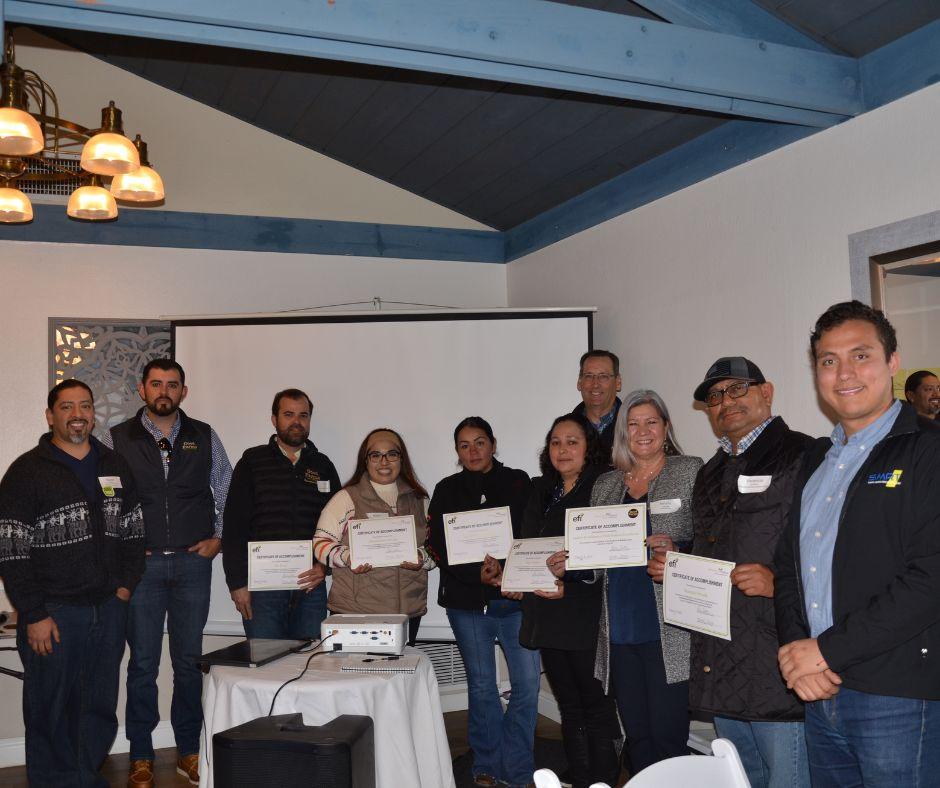
“My experience with the Produce & Reduce team has been informative and inspiring. To see recycling implemented in a culture where we don’t normally think of recycling as something beneficial is awe-inspiring.”
-Hugo Medina, Occupational Health & Safety Supervisor, GoodFarms
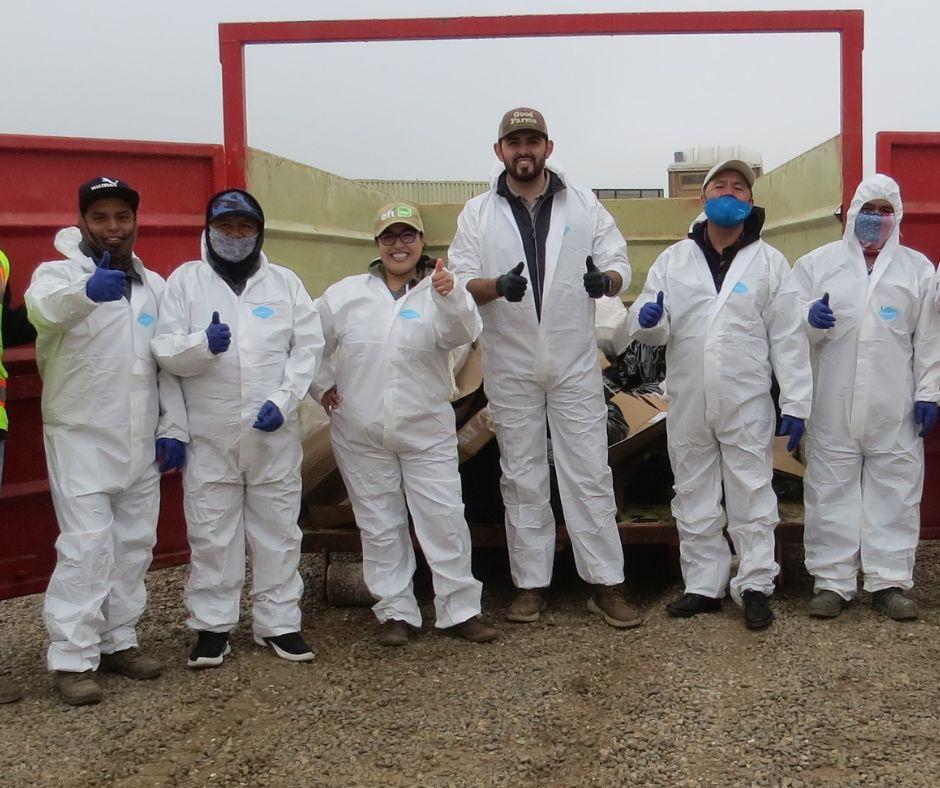
“I personally was skeptical about the cost of this program. There is always a financial cost associated with change… but it was the right thing to do for our employees, community, company, and environment. In the end, we realized that the financial impact was less than expected.”
-Ted Ponce, District Manager, GoodFarms
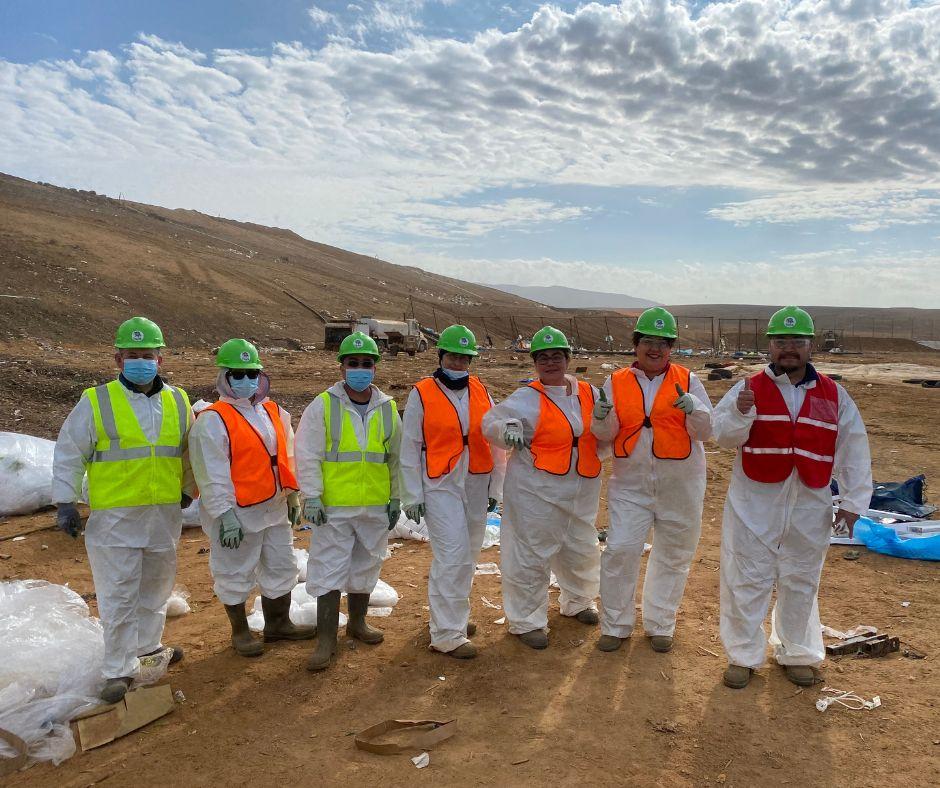
“Through participation in the Produce and Reduce program, our team not only acquired valuable knowledge and skills but also gained a new perspective that empowers them to make meaningful contributions to our workplace and their communities.”
-Cesar Topete, Production Manager, Misionero
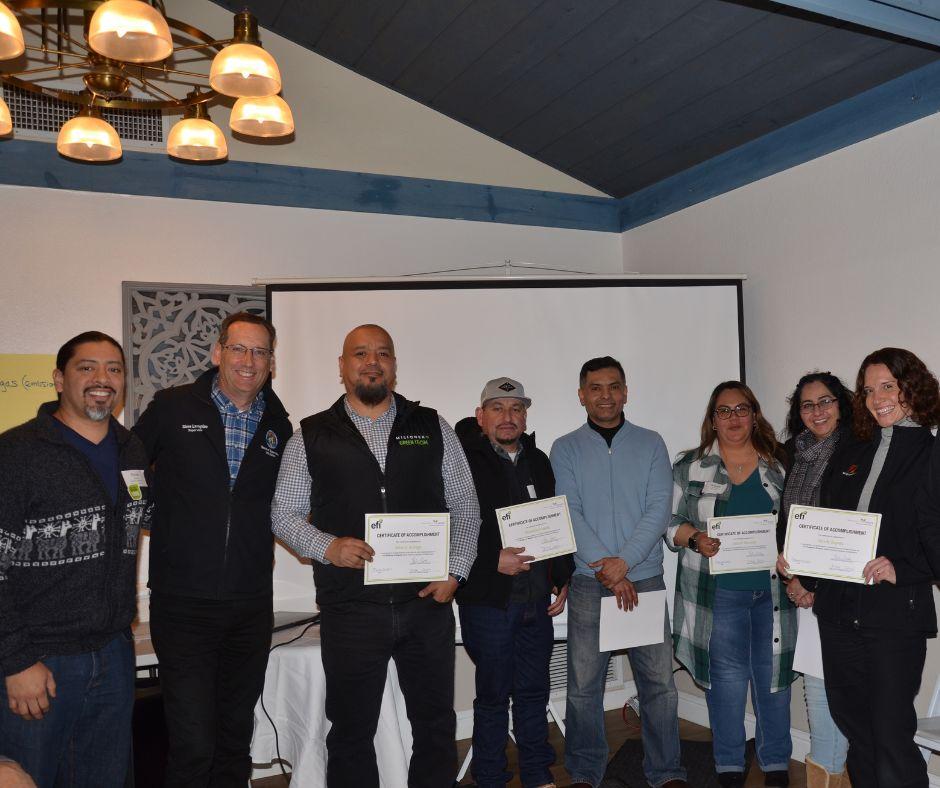
“Implementing Produce and Reduce has helped us increase efficiency and generate long -term business value by fostering a culture of sustainability and responsible resource management. By investing in our workforce through such training programs, we are creating a lasting positive impact on the bottom line and the environment.”
-Johnny Arriaga, Senior Plant Operations Manager, Misionero
Overall, the success of the Produce and Reduce Program demonstrates the importance of taking action to address the impacts of climate change in the agriculture industry. The program also highlights the importance of collaboration and workforce development in achieving sustainable solutions for the agricultural industry. By working together and implementing sustainable practices, the industry can contribute to a more sustainable future for all.

